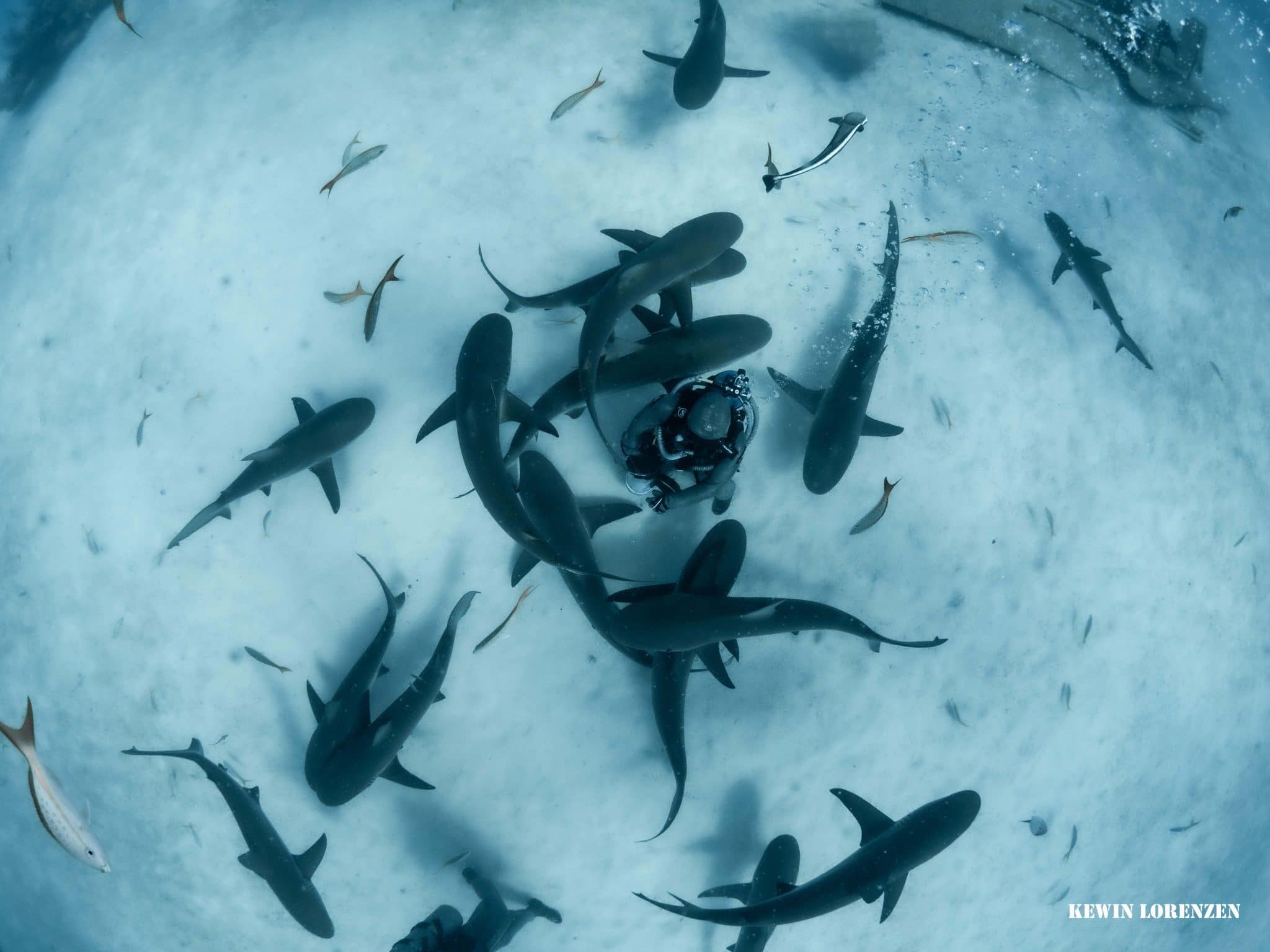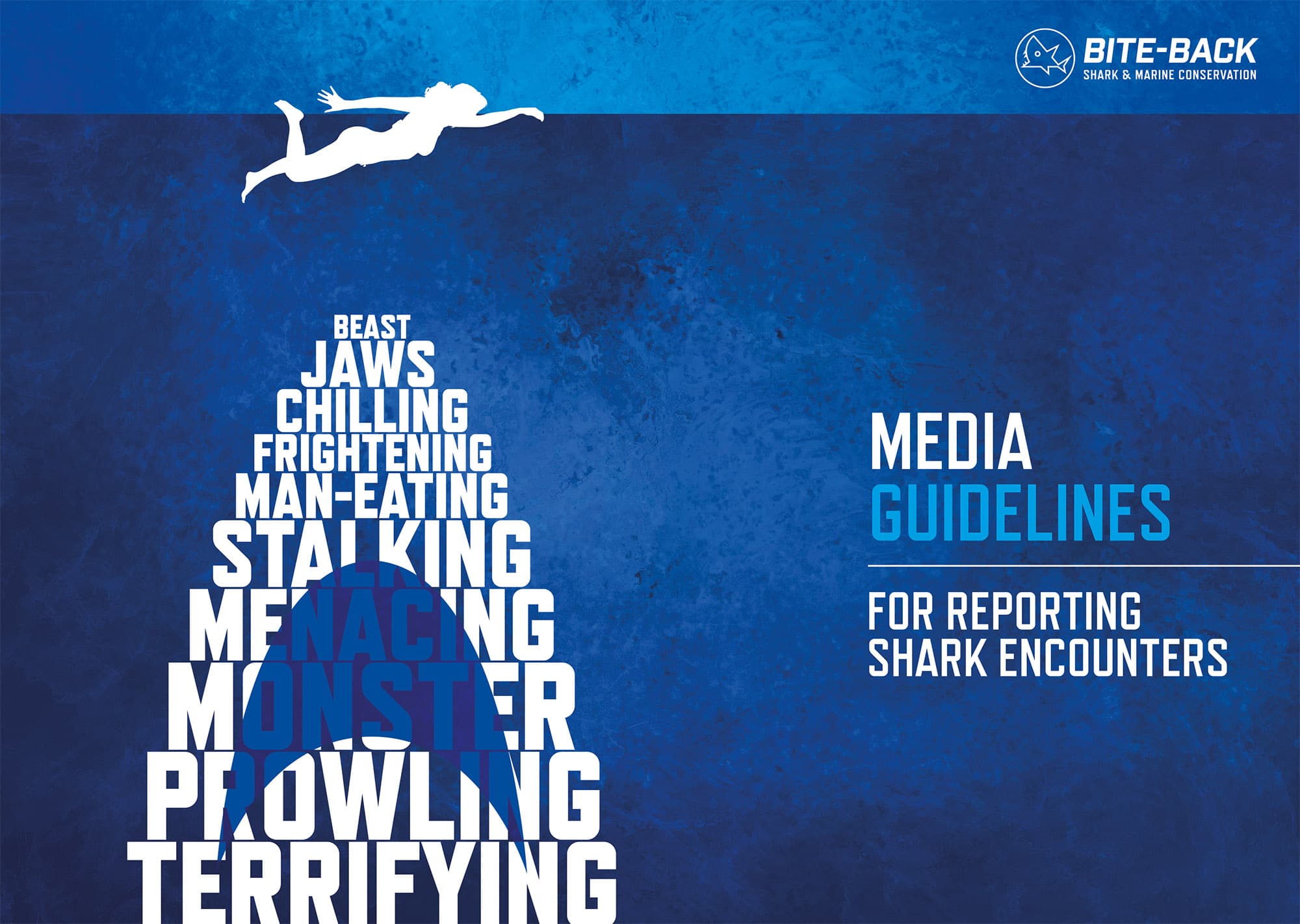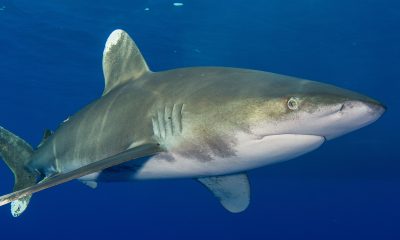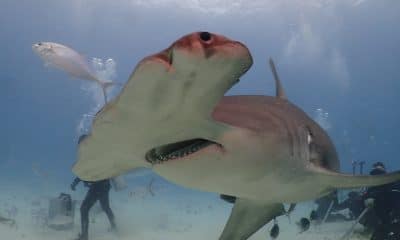Marine Life & Conservation
Cristina Zenato joins Bite-Back’s Media Campaign
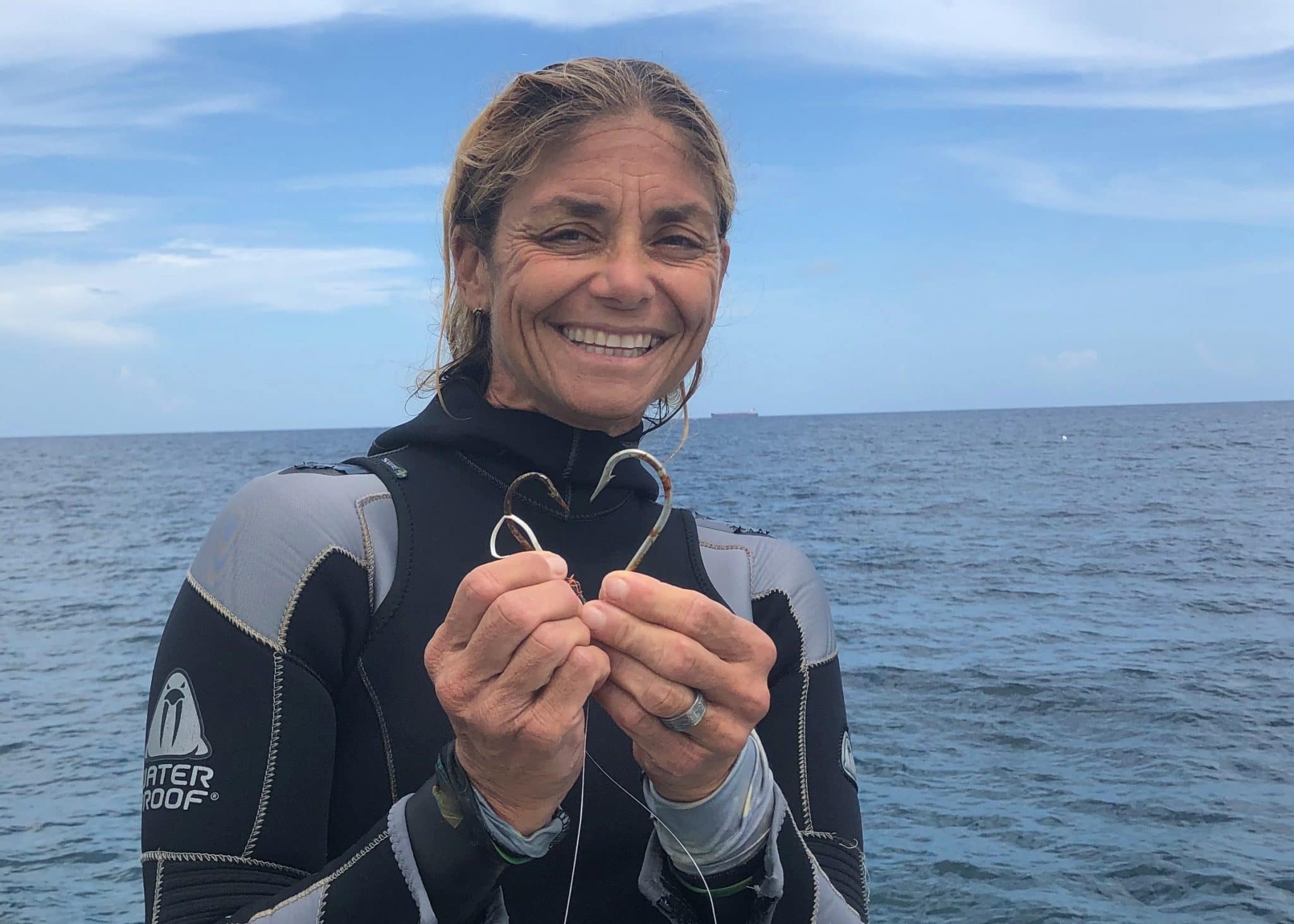
Globally respected shark diver and conservationist Cristina Zenato has become the latest high profile supporter of Bite-Back Shark & Marine Conservation’s Mind Your Language campaign, calling on the media to stop demonising sharks and only accurately report shark stories. Cristina Zenato now joins Steve Backshall MBE, Hugh Fearnley-Whittingstall and Wendy Benchley (widow of JAWS author, Peter) as ambassadors of the charity’s campaign.
Best known for her pioneering work with Caribbean Reef sharks in the Bahamas, including the frequent removal of fishing hooks from their mouths, Cristina Zenato has used her social media channels to speak out about how the media’s constant portrayal of sharks as ‘deadly’, ‘menacing’, ‘blood-thirsty beasts’ has conditioned the public to fear sharks rather than admire them. Like Bite-Back, Cristina Zenato believes that this learned mind-set stands in the way of important and urgent shark conservation efforts.
Cristina Zenato said: “For many people their only experience of sharks is in the movies, newspaper headlines and news reports. Words like ‘monster’, ‘killer’ and ‘man-eater’ are clichés and serve only to perpetuate a myth; a myth that needs to be exposed and set right. My daily experience with sharks is so far removed from these sensational headlines that I’m happy to give Bite-Back’s campaign my full support.”
Since it launched its Media Guidelines for Reporting Shark Encounters in 2019, Bite-Back says it’s noticed evidence of a positive shift in the way some media describe sharks but acknowledge that ‘there’s still a mountain to climb’.
Together with its ambassadors Bite-Back uses its Media Guidelines to educate and encourage media outlets to only factually report shark encounters and regularly exposes sensational and ‘killer’ headlines as harmful ‘click bait’.
Campaign director at Bite-Back, Graham Buckingham, said: “We can’t let the media go on describing sharks as monsters and expect people to love them. That’s why we’re excited to enrol Cristina to help us challenge the way the media reports shark encounters. Her passion for sharks is infectious and her voice has reach and authority. She’s a perfect ambassador for this campaign.”
Cristina Zenato’s work with sharks in the Bahamas is set to feature in the forthcoming TV series SHARKS with Steve Backshall on the Discovery Channel this autumn.
Find out more about Cristina Zenato at www.cristinazenato.com and learn how you can support Bite-Back’s campaigns at www.bite-back.com.
Marine Life & Conservation
Double Bubble for Basking Sharks

 The Shark Trust is excited to announce that, for two more days only, all donations, large or small, will be doubled in the Big Give Green Match Fund!
The Shark Trust is excited to announce that, for two more days only, all donations, large or small, will be doubled in the Big Give Green Match Fund!
Donate to Basking in Nature: Sighting Giants
The Shark Trust is hoping to raise £10k which will be doubled to £20k. This will go towards Basking in Nature: Sighting Giants. And they need YOUR help to reach they’re goal.
The Shark Trust’s citizen science project is to monitor and assess basking sharks through sightings; encouraging data collection, community engagement, and promoting nature accessibility. This initiative aims to enhance health and wellbeing by fostering a deeper connection with British Sharks.
Campaign Aims
- Increase citizen science reporting of Basking Sharks and other shark sightings to help inform shark and ray conservation.
- Provide educational talks about the diverse range of sharks and rays in British waters and accessible identification guides!
- Create engaging and fun information panels on how to ID the amazing sharks and rays we have on our doorstep! These can be used on coastal paths around the Southwest. With activities and information on how you can make a difference for sharks and rays!
- Promote mental wellbeing through increasing time in nature and discovering the wonders beneath the waves!
Donate, and double your impact. Click Here
Marine Life & Conservation
Leading UK-based shark conservation charity, the Shark Trust, is delighted to announce tour operator Diverse Travel as a Corporate Patron

 Corporate Patrons provide a valuable boost to the work of The Shark Trust. The Trust team works globally to safeguard the future of sharks, and their close cousins, the skates and rays, engaging with a global network of scientists, policymakers, conservation professionals, businesses and supporters to further shark conservation.
Corporate Patrons provide a valuable boost to the work of The Shark Trust. The Trust team works globally to safeguard the future of sharks, and their close cousins, the skates and rays, engaging with a global network of scientists, policymakers, conservation professionals, businesses and supporters to further shark conservation.
Specialist tour operator Diverse Travel has operated since 2014 and is committed to offering its guests high quality, sustainable scuba diving holidays worldwide. Working together with the Shark Trust will enable both organisations to widen engagement and encourage divers and snorkellers to actively get involved in shark conservation.
“Sharks are truly at the heart of every diver and at Diverse Travel, we absolutely share that passion. There is nothing like seeing a shark in the wild – it’s a moment that stays with you forever!” says Holly Bredin, Sales & Marketing Manager, Diverse Travel.
“We’re delighted to celebrate our 10th year of business by becoming a Corporate Patron of the Shark Trust. This is an exciting partnership for Diverse and our guests. We will be donating on behalf of every person who books a holiday with us to contribute towards their vital shark conservation initiatives around the world. We will also be working together with the Trust to inspire divers, snorkellers and other travellers to take an active role – at home and abroad – in citizen science projects and other activities.”
Paul Cox, CEO of The Shark Trust, said:
“It’s an exciting partnership and we’re thrilled to be working with Diverse Travel to enable more divers and travellers to get involved with sharks and shark conservation. Sharks face considerable conservation challenges but, through collaboration and collective action, we can secure a brighter future for sharks and their ocean home. This new partnership takes us one more valuable step towards that goal.”
For more information about the Shark Trust visit their website here.
For more about Diverse Travel click here.
-

 News3 months ago
News3 months agoHone your underwater photography skills with Alphamarine Photography at Red Sea Diving Safari in March
-

 News3 months ago
News3 months agoCapturing Critters in Lembeh Underwater Photography Workshop 2024: Event Roundup
-

 Marine Life & Conservation Blogs3 months ago
Marine Life & Conservation Blogs3 months agoCreature Feature: Swell Sharks
-

 Blogs2 months ago
Blogs2 months agoMurex Resorts: Passport to Paradise!
-

 Blogs2 months ago
Blogs2 months agoDiver Discovering Whale Skeletons Beneath Ice Judged World’s Best Underwater Photograph
-

 Gear Reviews2 weeks ago
Gear Reviews2 weeks agoGEAR REVIEW – Revolutionising Diving Comfort: The Sharkskin T2 Chillproof Suit
-

 Marine Life & Conservation2 months ago
Marine Life & Conservation2 months agoSave the Manatee Club launches brand new webcams at Silver Springs State Park, Florida
-

 Gear Reviews3 months ago
Gear Reviews3 months agoGear Review: Oceanic+ Dive Housing for iPhone


